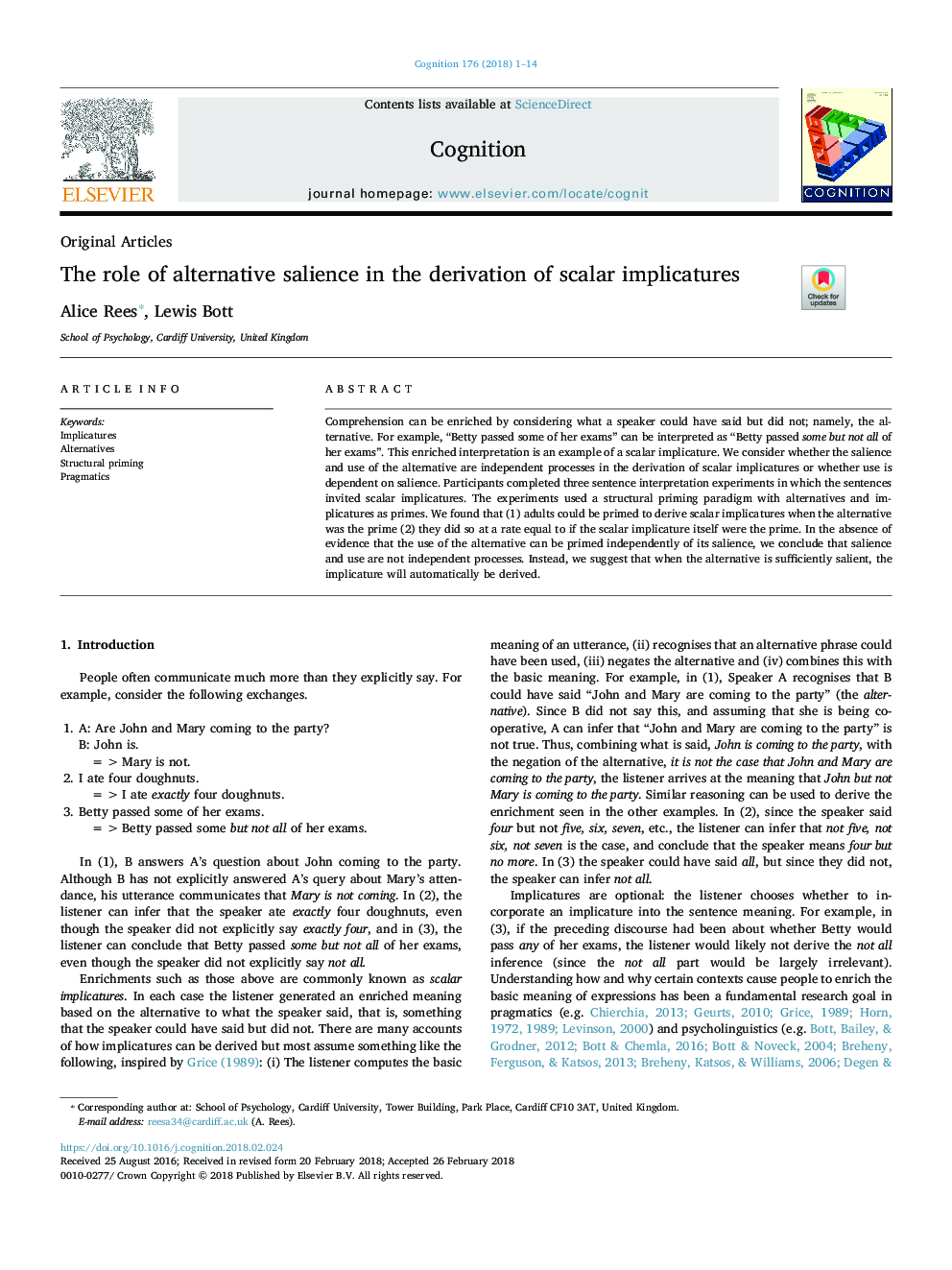| Article ID | Journal | Published Year | Pages | File Type |
|---|---|---|---|---|
| 7285280 | Cognition | 2018 | 14 Pages |
Abstract
Comprehension can be enriched by considering what a speaker could have said but did not; namely, the alternative. For example, “Betty passed some of her exams” can be interpreted as “Betty passed some but not all of her exams”. This enriched interpretation is an example of a scalar implicature. We consider whether the salience and use of the alternative are independent processes in the derivation of scalar implicatures or whether use is dependent on salience. Participants completed three sentence interpretation experiments in which the sentences invited scalar implicatures. The experiments used a structural priming paradigm with alternatives and implicatures as primes. We found that (1) adults could be primed to derive scalar implicatures when the alternative was the prime (2) they did so at a rate equal to if the scalar implicature itself were the prime. In the absence of evidence that the use of the alternative can be primed independently of its salience, we conclude that salience and use are not independent processes. Instead, we suggest that when the alternative is sufficiently salient, the implicature will automatically be derived.
Related Topics
Life Sciences
Neuroscience
Cognitive Neuroscience
Authors
Alice Rees, Lewis Bott,
